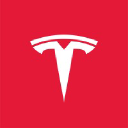🚀 Sign up Free for Public Company Valuation & Insights!
Sign up for free to get access to the best public company valuation and insights. Get started today and unlock the potential of your investments!
Sign up free Video Highlights
Tesla
-10.22%
Automotive / Electric vehicles, energy, and AI technology
At a Glance | Core Facts | Company Due Diligence: | Industry Due Diligence: | Competitors | Stock Swings | News | Income | Balance | Cash Flow | Growth | Enterprise | Ratios | Metrics | Dividends | Risks | SWOT | Porter's Five Forces | PEST | Score Positive | Clusters | Reports | Web1. Financial Risk: Tesla is a high-growth company that has been heavily dependent on investments, debt financing, and government subsidies. This leaves the company vulnerable to financial turmoil or funding constraints, which could impact its operations and growth plans.
2. Production Delays: Tesla has faced significant production delays in the past, which have affected its ability to meet customer demand and deliver on its promises. These delays can result in dissatisfied customers, negative publicity, and a decrease in stock value.
3. Competition: Tesla operates in a highly competitive market, facing competition from traditional automakers, as well as emerging electric vehicle companies. The entry of new players or advancements in technology could threaten Tesla’s market share and profitability.
4. Dependence on Elon Musk: Tesla is heavily reliant on its CEO and founder, Elon Musk. If Musk leaves the company or is unable to lead it effectively, it could have a significant impact on Tesla’s future success.
5. Safety Concerns: Tesla has faced safety concerns in the past, including vehicle fires, factory accidents, and autopilot crashes. These issues could tarnish the company’s reputation and result in expensive legal battles.
6. Supply Chain Disruption: Tesla sources many components from a limited number of suppliers, making it vulnerable to supply chain disruptions. This could result in delays in production and impact the company’s financial performance.
7. Regulatory Risks: Tesla operates in a highly regulated industry, and changes in government regulations or policies related to electric vehicles could impact its operations and profitability.
8. Global Economic Factors: Tesla’s operations are affected by global economic factors, including foreign exchange rates, trade policies, and macroeconomic conditions. Changes in these factors could impact the company’s financial performance.
9. Manufacturing Challenges: Tesla’s innovation and unique production processes can result in manufacturing challenges, including quality control issues and high costs. These challenges could impact the company’s profitability and reputation.
10. Cybersecurity and Data Privacy Risks: As Tesla’s vehicles become increasingly reliant on technology and data, cybersecurity threats and concerns about data privacy could negatively affect customer trust and the company’s financial performance.
Wait! There's more — sign up for free or log in